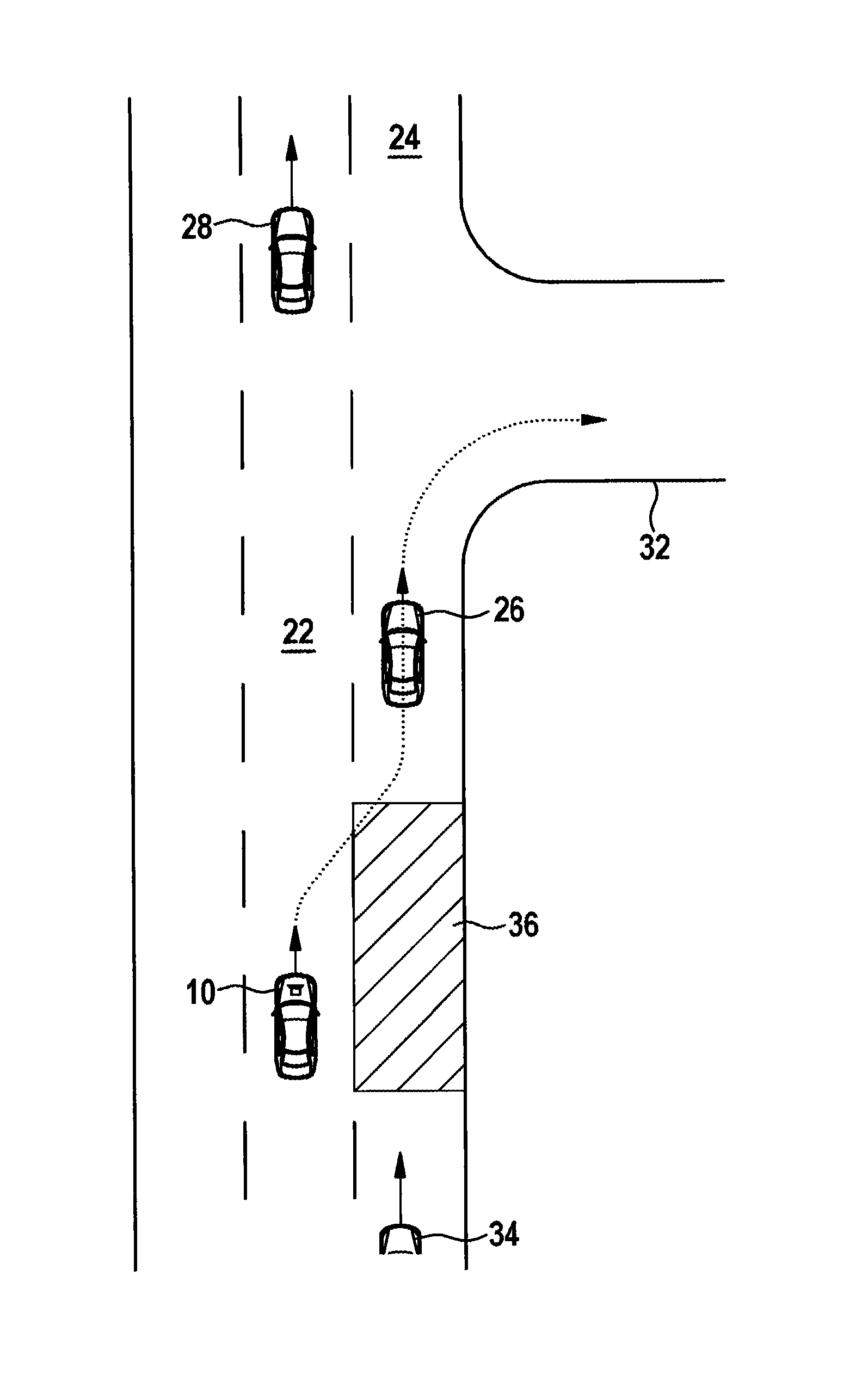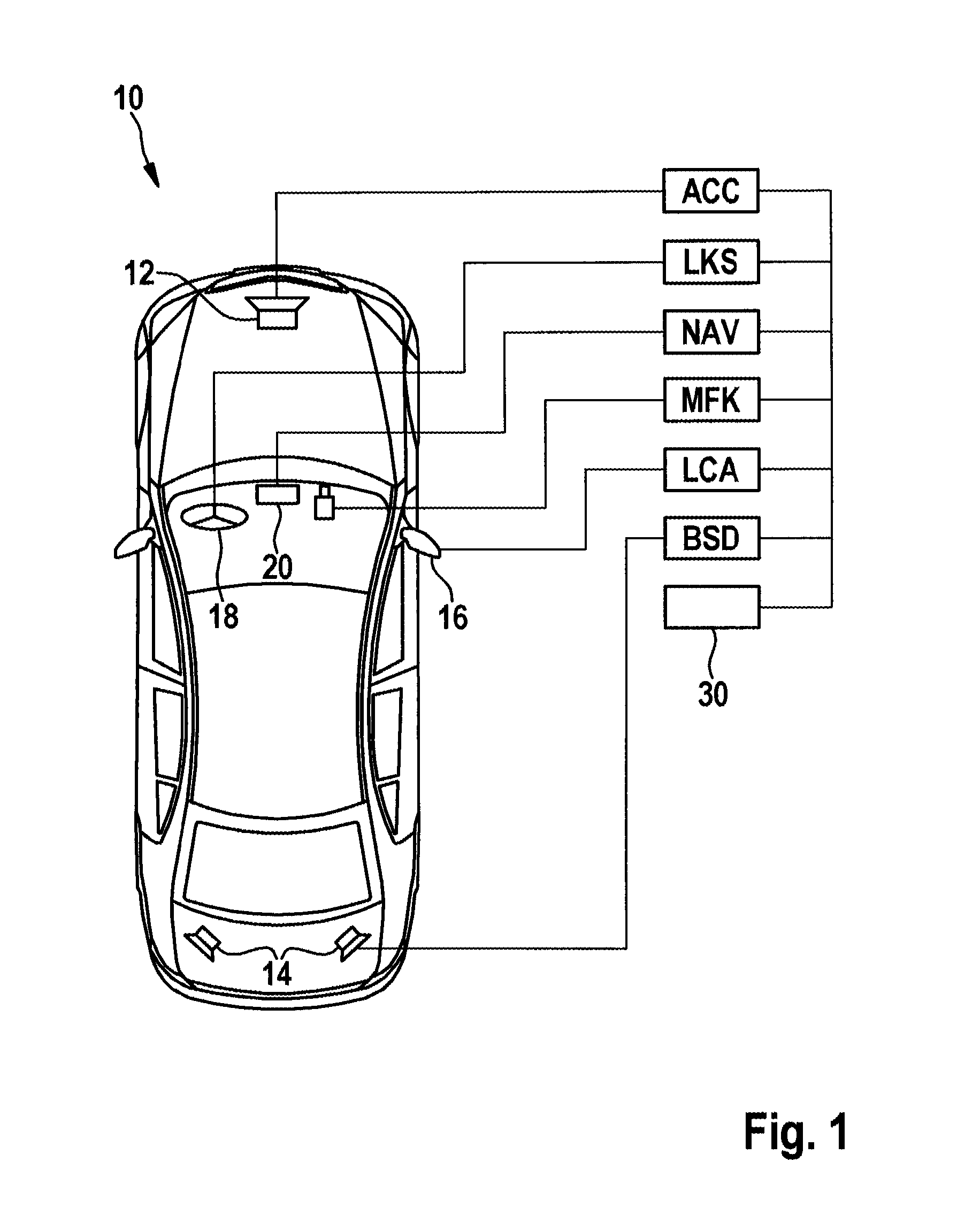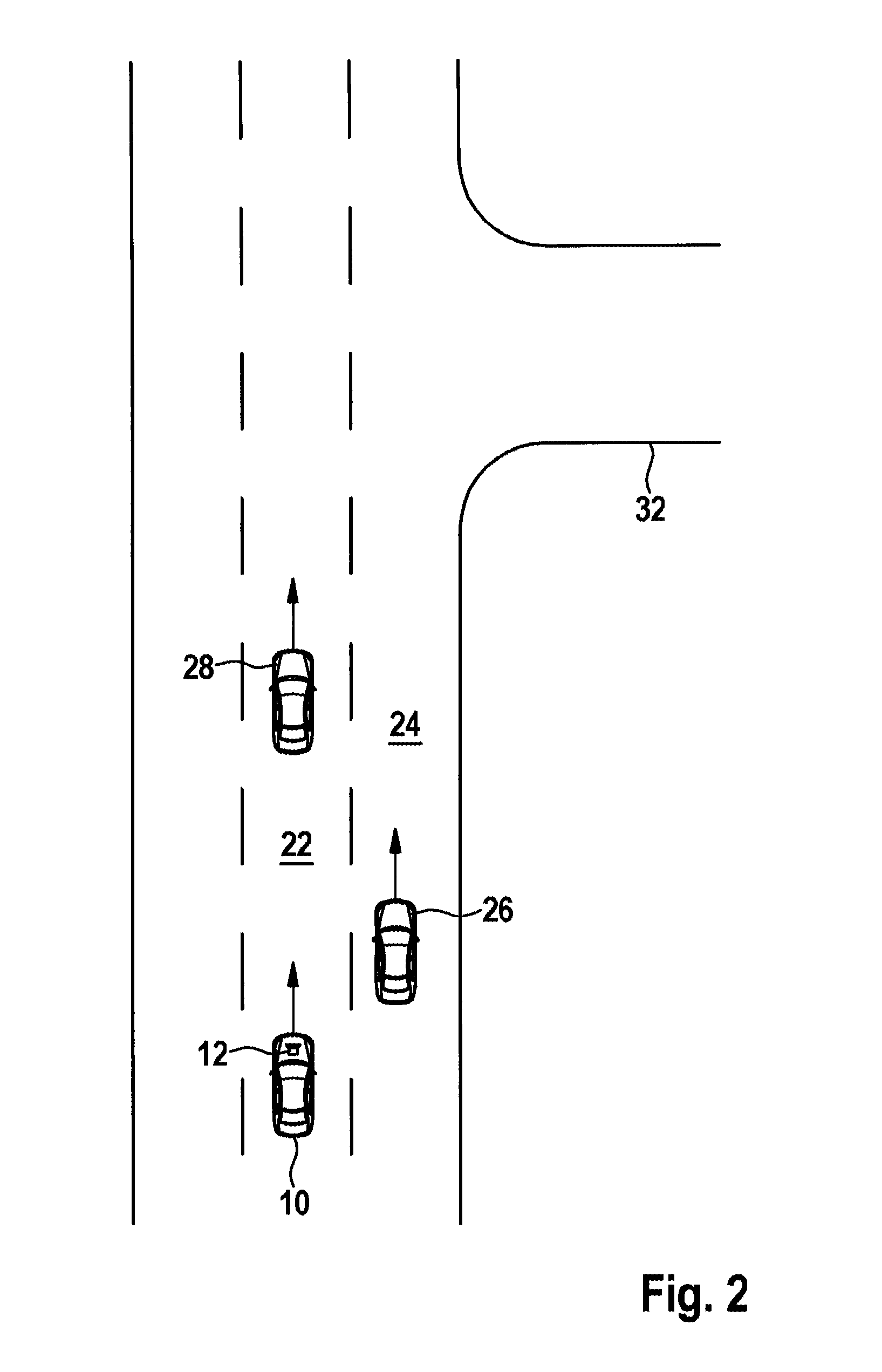Driver assistance system for motor vehicles
a technology for motor vehicles and drivers, applied in the direction of process and machine control, instruments, navigation instruments, etc., can solve the problems of inability to uniquely classify passenger cars, two-wheeled vehicles, pedestrians, vehicles that cannot accurately assess relative velocity, etc., to improve safety and ride comfort.
- Summary
- Abstract
- Description
- Claims
- Application Information
AI Technical Summary
Benefits of technology
Problems solved by technology
Method used
Image
Examples
Embodiment Construction
[0023]In a plan view, FIG. 1 schematically shows a motor vehicle 10 that is equipped with a driver assistance system according to the present invention. The driver assistance system is constituted in a generally known manner of an electronic data processing system or of a plurality of mutually cooperating data processing systems that receive input signals from various sensory components and transmit output signals to actuators of the motor vehicle, for example to the drive (engine and transmission management), the brake system and the steering system.
[0024]In the illustrated example, the driver assistance system encompasses a velocity regulation function ACC which, in the first place, evaluates signals from a long-range radar sensor 12 which is installed at the front of the vehicle, locates vehicles in front and other objects in the near field of the subject vehicle 10, and measures the distances and relative velocities thereof. For purposes of the assistance, a multifunction video ...
PUM
 Login to View More
Login to View More Abstract
Description
Claims
Application Information
 Login to View More
Login to View More - R&D
- Intellectual Property
- Life Sciences
- Materials
- Tech Scout
- Unparalleled Data Quality
- Higher Quality Content
- 60% Fewer Hallucinations
Browse by: Latest US Patents, China's latest patents, Technical Efficacy Thesaurus, Application Domain, Technology Topic, Popular Technical Reports.
© 2025 PatSnap. All rights reserved.Legal|Privacy policy|Modern Slavery Act Transparency Statement|Sitemap|About US| Contact US: help@patsnap.com



